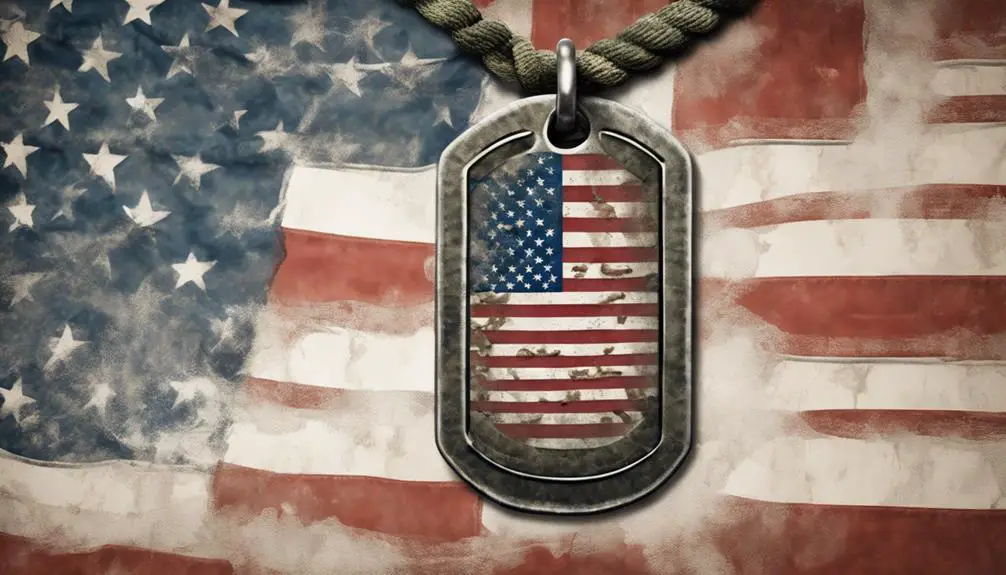You're familiar with 'Hooah' and 'Oorah', but did you know the US military has a rich, complex language system? From 'FNG' for new recruits to unique slang for drills and equipment, there's more to military lingo than just a few catchphrases. Nicknames for everyday objects, like 'joe' for coffee, simplify communication in high-stress situations. Battle cries and mottoes reflect military heritage and values. And let's not forget hairstyles – from buzz cuts to high-and-tights, each branch has its styles. You're just scratching the surface of military slang – there's more to uncover in the world of military communication.
Slang of the US Armed Forces
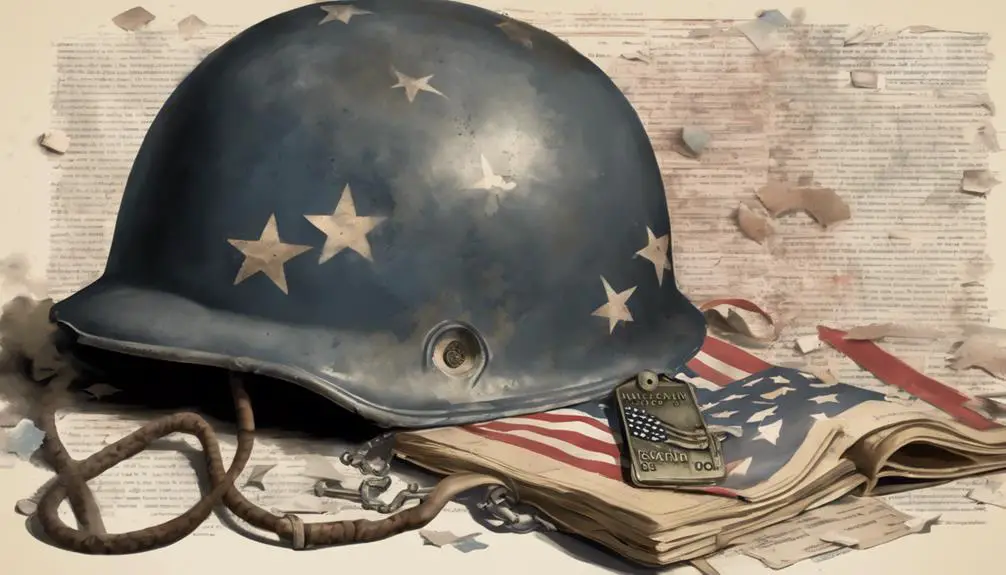
You'll often hear US military personnel tossing around slang terms like 'Hooah' (meaning 'yes' or 'agreement') and 'FNG' (short for 'Freaking New Guy,' a rookie soldier). These colloquialisms are an integral part of military culture, and they're not just limited to casual conversations.
In fact, there are specialized forms of slang used by specific groups within the armed forces. Take, for instance, the 'Code Talkers' – Native American soldiers who developed unbreakable codes during World War II. These codes, based on indigenous languages, were virtually indecipherable to enemy forces. The slang used by Code Talkers was a vital component of their success, allowing them to convey sensitive information without being detected.
Meanwhile, Drill Inspectors have their own unique slang, used to train and evaluate new recruits. This specialized language helps instructors to quickly and efficiently communicate complex instructions, ensuring that new soldiers are whipped into shape in no time.
Battle Cries and Mottoes
As you explore the lexicon of military slang, you're likely to stumble upon battle cries and mottoes that evoke a sense of pride, loyalty, and camaraderie among troops. These Historic Chants and Cultural Anthems have been passed down through generations, serving as a unifying force for soldiers in the heat of battle.
From the iconic 'Hooah!' of the US Army to the 'Semper Fidelis' of the Marine Corps, each branch has its own unique battle cry that resonates with its personnel.
These phrases often originate from a mix of heritage, tradition, and folklore, reflecting the values and ethos of the military. For instance, the 'Hooah' cry is believed to have originated from the Apache war cry, while the 'Semper Fidelis' motto translates to 'Always Faithful' in Latin.
Nicknames for Everyday Objects
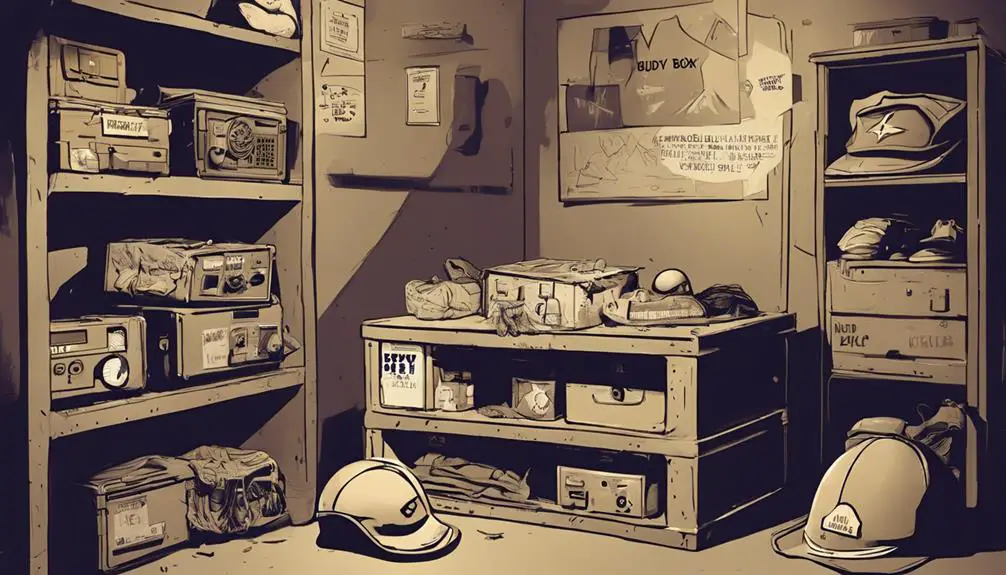
In the military, even the most mundane objects get rebranded with nicknames that reflect their function, appearance, or quirks. You'll find that everyday items like flashlights, binoculars, and even toilet paper have earned unique monikers. These nicknames, also known as "Gear Names" or "Tool Tags," serve as a form of shorthand, making communication more efficient in high-stress situations.
Here are a few examples:
| Object | Nickname | Reason |
|---|---|---|
| Flashlight | "Moonbeam" | Soft, gentle light |
| Binoculars | "Bird Dogs" | Scouting and surveillance |
| Toilet Paper | "Wet Wipes" | Quick clean-up |
| Radios | "Blowers" | Communication devices |
| Helmets | "Kevlar Coffins" | Protective gear |
These nicknames not only simplify communication but also reflect the military's penchant for humor and creativity. By giving ordinary objects distinct personalities, you'll find that even the most mundane tasks become more engaging and memorable.
Food and Drink Slang
Chow time in the military gets a linguistic makeover, with grub and drinks earning colorful nicknames that reflect their taste, texture, or the emotions they evoke. You'll hear soldiers referring to their meals as 'chow' or 'mess,' which is where the term 'mess hall' originates. Coffee, a staple in many military diets, is often called 'joe' or 'cup of joe.' Even the humble MRE (Meals, Ready-to-Eat) gets a nickname – 'meal, ready-to-eat-while-complaining.'
In the military, food can be a comfort, a morale booster, or a necessary evil. When you're in the midst of a grueling training exercise or deployed in a remote area, a hot meal can be a welcome respite. That's why you might hear soldiers rave about 'chow time,' when they get to refuel and recharge.
Whether it's a hearty breakfast, a quick energy bar, or a warm cup of joe, food and drink take on a new significance in the military.
Military Haircuts and Styles
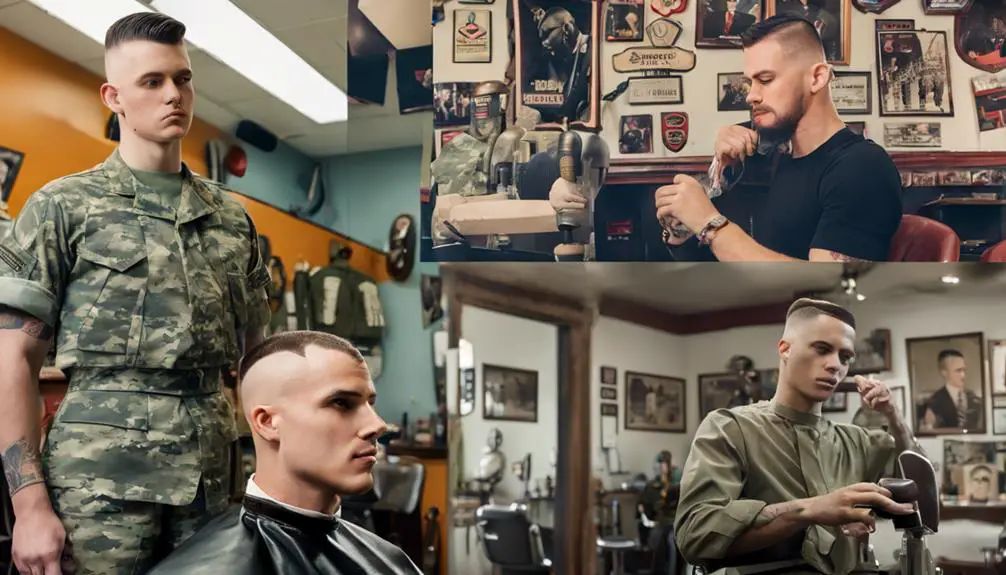
You'll soon discover that military haircuts and styles are a unique breed, with buzz cuts, high-and-tights, and fades that scream 'I'm a warrior' rather than 'I'm a fashionista.' The regulation length of your hair is essential, and you'll need to adhere to strict guidelines to avoid getting in trouble. For men, hair must be kept neat and tidy, with no visible signs of unkemptness. Women, on the other hand, have more flexibility with their hairstyles, but still need to maintain a professional look.
As you navigate the military's hairstyle evolution, you'll notice that styles can vary greatly depending on the branch and unit. From the classic high-and-tight to the more modern undercut, each style has its own unique charm. But don't get too comfortable – hairstyles can change quickly, and you'll need to adapt to new regulations and trends.
Slang for Military Equipment
From rifles to Humvees, military equipment has its own distinct lingo, and mastering it's essential to communicating effectively in the field.
You'll soon find that gear names and weapon nicknames are an integral part of military slang. Take the M4A1, for instance, which is often referred to as the 'M4' or simply 'carbine.' The M16A2, on the other hand, is nicknamed the 'M16' or 'sixteen.' Then there's the 'fifty-cal' – a nickname for the M2 Browning machine gun, which fires .50-caliber rounds.
When it comes to vehicles, you'll hear 'Humvee' used to describe the High Mobility Multipurpose Wheeled Vehicle (HMMWV). Even aircraft have their own nicknames, like the 'Huey' for the UH-1 helicopter or the 'Hawk' for the AH-1 attack helicopter.
Mastering these gear names and weapon nicknames will help you communicate more effectively with your team and show that you're familiar with the lingo of the military. So, get familiar with these terms and you'll be speaking like a pro in no time!
Ranks and Titles in Slang
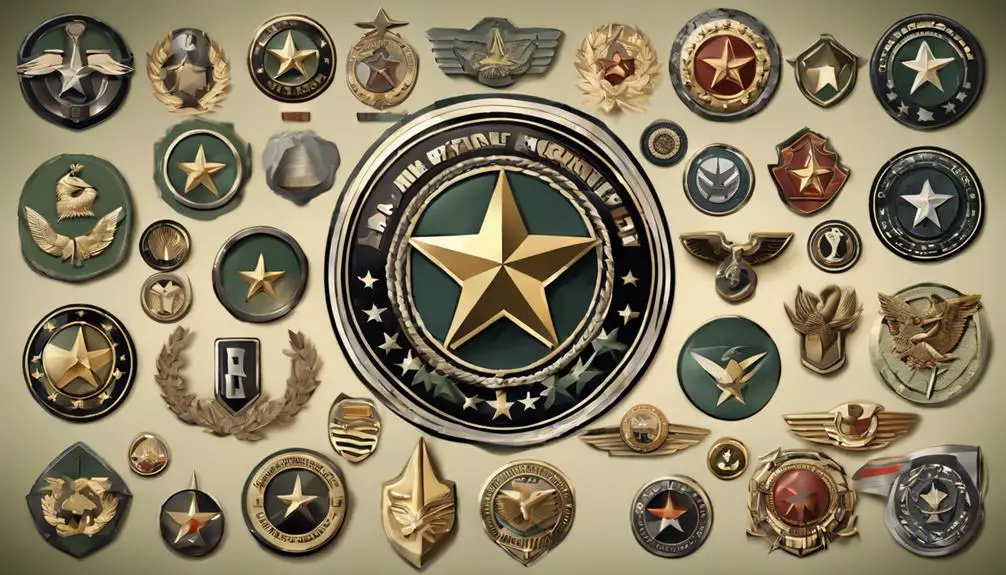
In the military, where hierarchy is paramount, rank and title slang serves as a linguistic shorthand, allowing servicemembers to quickly convey respect, authority, and camaraderie. You'll often hear officers referred to as 'sirs' or 'ma'ams,' while enlisted personnel might use 'chief' or 'gunny' to address a senior non-commissioned officer.
Officer Lingo, like 'O-1' for a second lieutenant or 'O-3' for a captain, helps you navigate the chain of command with ease. Enlisted Jargon, on the other hand, includes terms like 'E-3' for a private first class or 'E-7' for a sergeant first class. These shorthand terms streamline communication, saving time and reducing confusion.
You might even hear 'LT' for lieutenant or 'CPT' for captain, further illustrating the military's affinity for brevity. In a high-stress environment, every second counts, and rank and title slang helps you stay focused on the mission at hand. So, whether you're an officer or enlisted, mastering these terms is essential for effective communication and a smoother military experience.
Phrases for Emotions and Actions
About 150 phrases in military slang describe emotions, actions, and situations, allowing servicemembers to convey complex feelings and ideas quickly and efficiently. You'll find that these phrases help you express yourself in high-pressure situations, where every second counts.
When you're in the thick of it, you don't have time to mince words. That's where phrases like 'Emotional Triggers' come in – they help you identify and articulate your emotions in the heat of the moment.
Combat Highs, on the other hand, refer to the rush of adrenaline you feel during intense combat situations. It's a natural response to the intense stress and danger, but it can also be overwhelming. Having a phrase to describe it helps you process and cope with the emotional aftermath.
These phrases aren't just about expressing emotions, though – they also help you communicate effectively with your team. When you can quickly convey your emotional state, you can get the support you need and stay focused on the mission.
In the military, clear communication is key, and these phrases are an essential part of that.
Frequently Asked Questions
Can Civilians Use Military Slang in Everyday Conversations?
You're wondering if you can casually drop military slang into your everyday conversations. Here's the deal: using terms without understanding their context can be seen as cultural appropriation.
It's like wearing a uniform without earning the stripes. Your verbal identity is built on authenticity, not borrowed cool.
Unless you've served, it's best to stick to your own lingo. Otherwise, you might come across as a poser, and that's just not a good look.
Are Military Slang Terms Universal Across All Branches?
You're wondering if military slang terms are one-size-fits-all, like a Swiss Army knife that works for every situation.
Not quite. Branch variations and service differences mean that what's cool in the Army mightn't fly in the Navy.
Each branch has its own unique lingo, shaped by their distinct culture and history.
How Do Military Slang Terms Originate and Spread?
You're curious about how certain phrases become ingrained in a community. Well, it often starts with a spark in a specific Operational Environment, where people from diverse backgrounds converge.
Cultural Exchange plays a significant role, as individuals share experiences and adapt to their surroundings. A catchy phrase or term resonates, and soon it's adopted by others.
As people rotate in and out, the phrase spreads, eventually becoming an integral part of the group's lingo.
Are There Any Military Slang Terms That Are Considered Offensive?
You might be surprised to find that some slang terms, even outside of the military, can be pretty offensive. Derogatory terms and sensitive phrases can slip into casual conversation, but it's important to recognize when language crosses a line.
In the military, where camaraderie and banter are important, it's necessary to distinguish between harmless jargon and hurtful slurs. As you explore military slang, you'll discover that not all terms are created equal – some are downright offensive, and it's important to know the difference.
Do Military Slang Terms Change Over Time With New Generations?
You're wondering if slang terms change over time with new generations. The answer is yes! Slang is a reflection of the era's cultural landscape, and as cultural drift occurs, language evolves.
New generations bring fresh perspectives, and slang adapts to fit their experiences. This natural evolution guarantees slang stays relevant, making it a dynamic reflection of the times.
As you'd expect, military slang is no exception, influenced by the cultural currents of its time.
Conclusion
You've now got a taste of the 96 military slang terms that'll help you sound like a seasoned pro. Remember, when in Rome, do as the Romans do – and in the military, that means speaking the lingo.
Don't be a FNG (freaking new guy) anymore! With this list, you'll be 'cooler than the other side of the pillow' and ready to roll with the big boys.
So, get out there and show 'em what you're made of!

